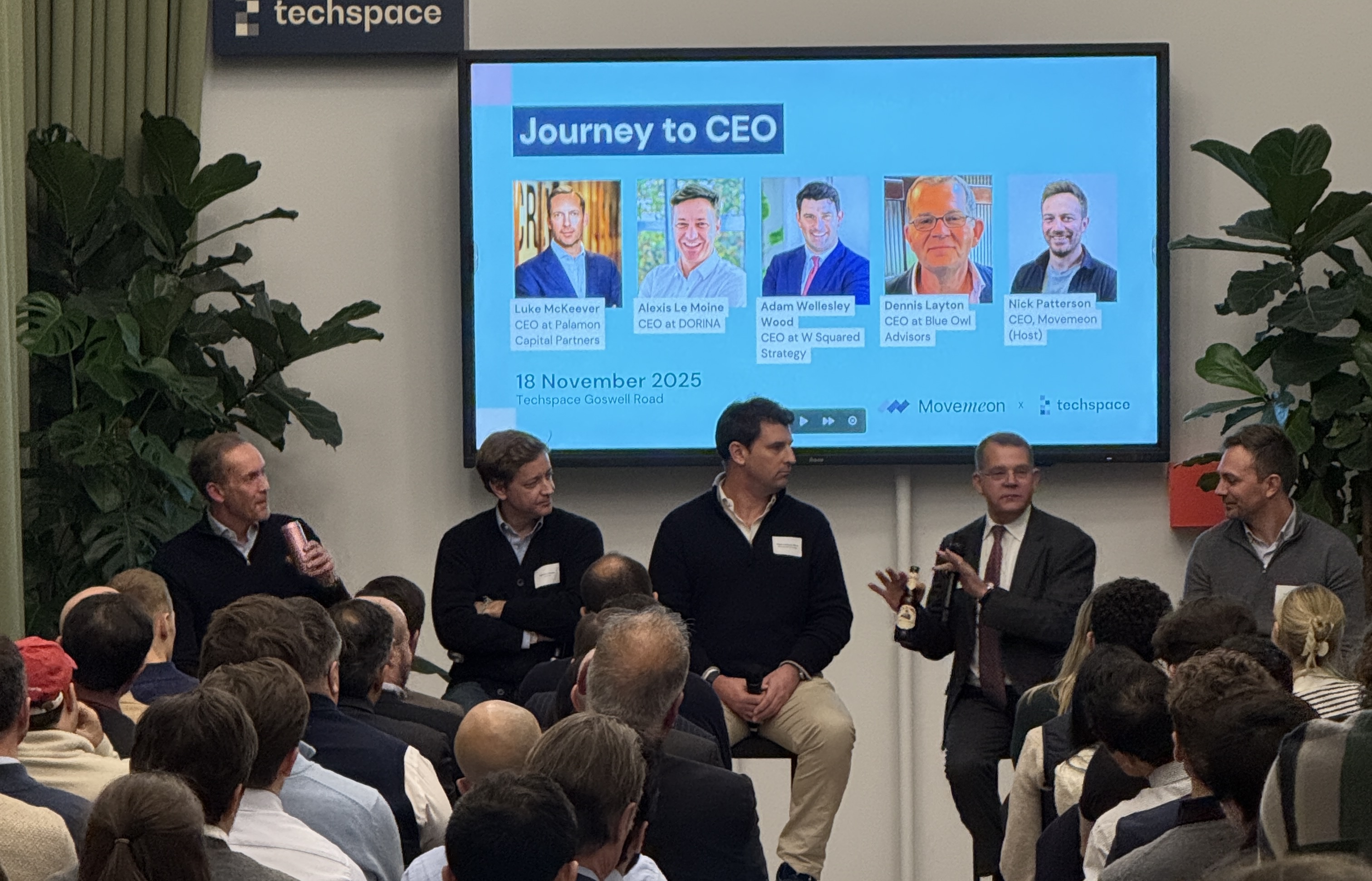From Bain to founding a company and working as a freelance consultant
Raphaël started his career at Bain and later founded his own company. With Movemeon he talks about being a founder and freelance consultant.

Table of contents
Tags
Subscribe to our Newsletter
We spoke to Raphaël Bouzy, who started his career at Bain and later founded his own company. With Movemeon he talks about his career path and experience in being a founder and a freelance consultant.
Let’s start with an elevator pitch of your exciting career so far.
I have over 15 years of International experience in consulting and entrepreneurship. I started as a consultant at Bain in London before moving to Hong Kong where I worked for an international advocacy firm which is one of the most influential financial lobbies in the world. It was quite an interesting time as I was working there during the 2008 global financial crisis when it was extremely hard to influence legislative actions that made necessary changes in the market. After that, I took a short break to travel around the world before moving to Singapore, where I've since been residing for over 10 years.
In Singapore, I joined Control Risks, a firm that focuses on political consulting, crisis management and fraud investigation. I specialised in pre-investment due diligence where the focus was on examining the reputation, track record and political connections of a company, its owners and the senior management, instead of analysing the company’s accounts or carrying out market research. In that way, it was quite different from a typical consulting firm.
After that, I founded my own company, Datarama, which was recognised as one of the top 100 most innovative RegTech companies in the world under my leadership. I exited in late 2021.
Currently, as a freelance consultant and advisor, I'm helping long-term clients with business politics, emerging markets strategy, ESG/sustainability, and corporate/digital transformation.
Do you think your experience in consulting was crucial in starting and successfully running your own business?
I wouldn’t say it was crucial, but it was definitely useful. There is really nothing that can prepare you to run your own company. As a founder, you'll be working on multiple things at the same time which are completely different, for example, you'll be preparing presentations for fundraising, while reviewing CVs for hiring and building the team, as well as wearing an accountant's hat to keep an eye on the numbers!
Consulting essentially develops your adapting skills. Often you have to solve problems in an area that you hardly have any knowledge about and hence are forced to learn things faster. In that sense, consulting experience was very useful. But at the end of the day, if you are a consultant and you want to be an entrepreneur, it's quite a big jump.
How did you get into freelancing / independent advisory? What advice would you give to consultants who are keen to do freelance work?
When I founded my company, I had to work 80 - 90 hours a week sometimes and therefore didn’t have the time or energy to do freelance work. I waited until I exited my startup to start working as a freelancer. It has been great so far, offering me a lot of freedom to travel and work.
If you are considering working as a freelance consultant, ideally you'll already have some potential clients, maybe you've worked with some in the past and have maintained solid relationships. These are clients who offer you a project because they personally know that you can get it done, not really because you worked in a big firm. If you don’t know at least 4 or 5 such clients and don’t have decent personal connections, it's going to be challenging getting started. So my advice is to curate and maintain relationships for the long term while you are still in consulting.
From your experience, how does Singapore or the broader APAC market differ from the European market?
It really depends upon the industry that you work in. In general, Singapore has a lower unemployment rate when compared to countries like Spain or France.
At the moment, it's a bit hard to relocate to Singapore as securing a visa has become difficult. If you are working in a large consultancy or a tech firm that has an office in Singapore, then your move is going to be smooth. I've found when compared to Singapore, Hong Kong is much easier to move in and find a job, as there is a big demand for brains these days.
How did you find your experience with Movemeon - Do you have any tips for other candidates that are currently looking for a new opportunity?
Movemeon is by far the best experience I had with any recruitment company, platform or jobs-related organisation. The thing that sets them apart is that they listen and actually care about you, keeping you informed throughout. Combined with the platform that automates job alerts and gives access to worldwide opportunities, it's a really powerful proposition.
My advice to candidates is to not hesitate to create a line of communication with the Movemeon Success team.
Are you currently looking for a new job?
Then join Movemeon and find your next opportunity!
Where Talent Meets Opportunity
Our exclusive network use us to find job that fit their skills, and thousands of Employers trust us to hire exceptional talent. Choose the path that matches your goals - start exploring or start hiring.
Our latest articles
We regularly publish up-to-date articles to keep you up-to-date on the market and our work.
.png)
A record quarter for Private Equity deals sees a sharp hardening in the hiring market
Talent supply tightens as PE demand surges: Inside Q4’s hardest hiring market in two years, where Private Equity accelerates, scale-ups hold steady, and Large Enterprises struggle to attract strategy and transformation talent.

What we can all learn from Private Equity about talent - McKinsey, HBR and our analysis
Private Equity has become one of the most influential forces in business, outperforming public companies through disciplined value creation and exceptional talent strategy. This article explains how PE achieves its results and why demand for ex-consulting talent is rising across the industry.
Join our exclusive global community
Receive exclusive data & insights on pay, benchmarking, and industry interviews to build a career that’s right for you.
Create an account today and start searching roles in under five minutes.






